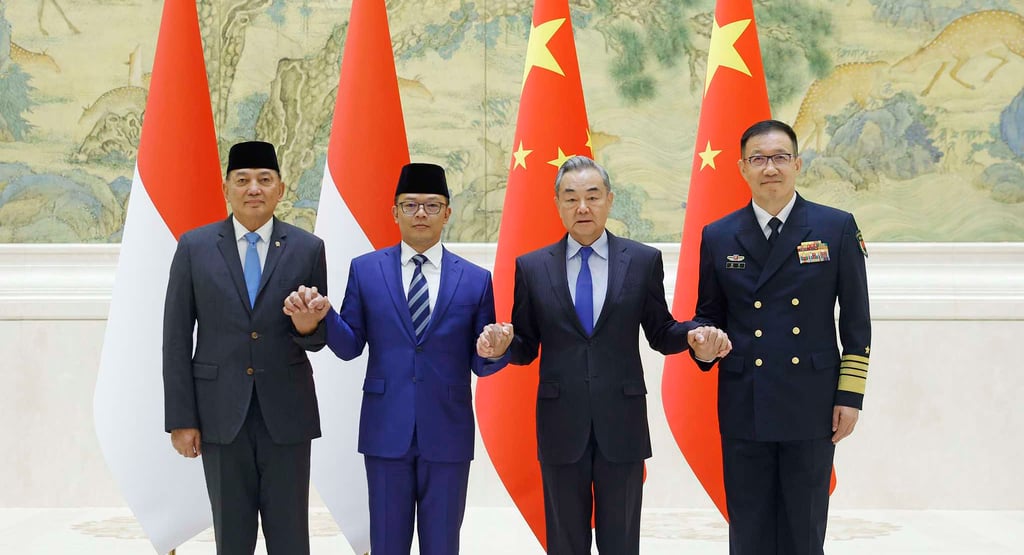The Global Trade Shift: A World Without U.S. Influence – What’s Next for International Cooperation?
4/24/20253 min read


The Global Trade Shift: A World Without U.S. Influence – What’s Next for International Cooperation?
In a surprising turn of events, the U.S.’s recent policy shifts—most notably the reciprocal tariff policy announced on April 3, 2025, by the White House—have sparked a global backlash. This policy, aimed at rebalancing trade deficits by imposing additional duties on imports from all trading partners, has driven a wedge between the U.S. and its allies. As nations turn away from America’s economic framework, a new wave of international cooperation is emerging, with countries like China and Indonesia leading the charge. What does this mean for global trade, economies, and our near future?
A New Era of Cooperation: China and Indonesia Take the Lead
On April 21, 2025, China and Indonesia held their first Joint Foreign and Defense Ministerial Dialogue in Beijing, a landmark event signaling deeper ties between the two nations. This “2+2” ministerial mechanism, the first of its kind between China and any other country, underscores a strategic partnership that transcends traditional diplomacy. Building on the momentum from their August 2024 Senior Officials’ Meeting in Jakarta, this dialogue highlights a shared commitment to regional stability, economic growth, and multilateralism—without U.S. involvement.
This meeting isn’t an isolated event. It coincides with the 75th anniversary of China-Indonesia diplomatic relations and follows a November 2024 maritime development agreement near the Natuna Islands. China, already Indonesia’s second-largest foreign aid donor and a key infrastructure partner since their 2005 Strategic Partnership, is doubling down on economic collaboration. Indonesia, in turn, benefits from China’s Global Development Initiative, which promotes sustainable growth in emerging economies. Together, they’re fostering a trade network that prioritizes Asia-Pacific integration over Western-led frameworks.
The Ripple Effect: Global Trade Without the U.S.
The U.S.’s tariff policy has alienated even its closest allies, pushing them to seek alternative trade partners. The White House’s justification—national security concerns amid rising global conflicts—hasn’t resonated with nations already skeptical of unilateral U.S. actions. As a result, countries are pivoting toward frameworks like the Regional Comprehensive Economic Partnership (RCEP), which includes China, Indonesia, and 13 other Asia-Pacific nations but excludes the U.S. This bloc, already the world’s largest free trade area, is poised to expand its influence.
China and Indonesia’s cooperation is a microcosm of a broader trend. Emerging economies like Brazil, India, and South Africa are also deepening ties with China, leveraging platforms like the G20—where cooperation between advanced and emerging economies has historical precedence, as seen during the 2008 financial crisis. The International Monetary Fund has warned that retreating from global cooperation could recreate conditions for past crises, yet the U.S.’s isolationist stance is accelerating this shift. Without America’s economic leadership, trade flows are being redirected, with Asia at the helm.
What’s at Stake for the Near Future?
The implications of this shift are profound. First, global supply chains will reorient toward Asia, with China and Indonesia playing central roles. Industries reliant on U.S. markets—like tech, agriculture, and manufacturing—may face disruptions as tariffs make American goods less competitive. Conversely, Asian markets could see a boom, with increased investment in infrastructure, green energy, and digital economies under initiatives like China’s Belt and Road.
Second, the U.S.’s geopolitical influence could wane. As Brookings noted in 2016, America’s unrivaled power depends on shaping an international environment conducive to its interests. By stepping back, the U.S. risks ceding ground to China, which is actively promoting its vision of “common, comprehensive, cooperative, and sustainable security.” This could reshape global governance, with institutions like the United Nations or the G20 tilting toward non-Western priorities.
Finally, the average consumer will feel the impact. Higher tariffs mean increased costs for imported goods in the U.S., potentially fueling inflation. Meanwhile, countries cooperating outside the U.S. sphere may enjoy more stable trade relations, fostering economic growth in those regions. The divide between a protectionist U.S. and a collaborative global south could widen, exacerbating inequality on a global scale.
Looking Ahead: A World Redefined
The U.S.’s current trajectory risks isolating it from a rapidly evolving global economy. As countries like China and Indonesia forge ahead with cooperative frameworks, the balance of economic power is shifting eastward. While the U.S. grapples with internal challenges—like addressing the trade deficit and military readiness—nations elsewhere are building a future rooted in multilateralism and shared growth.
What does this mean for us? Will the U.S. adapt to this new reality, or will it double down on isolationism? How will global citizens navigate a world where economic alliances no longer revolve around American interests? And most importantly, can international cooperation truly thrive without the U.S., or are we on the brink of a new era of economic fragmentation? Let’s discuss—what do you think the future holds?
hello@boncopia.com
+13286036419
© 2025. All rights reserved.